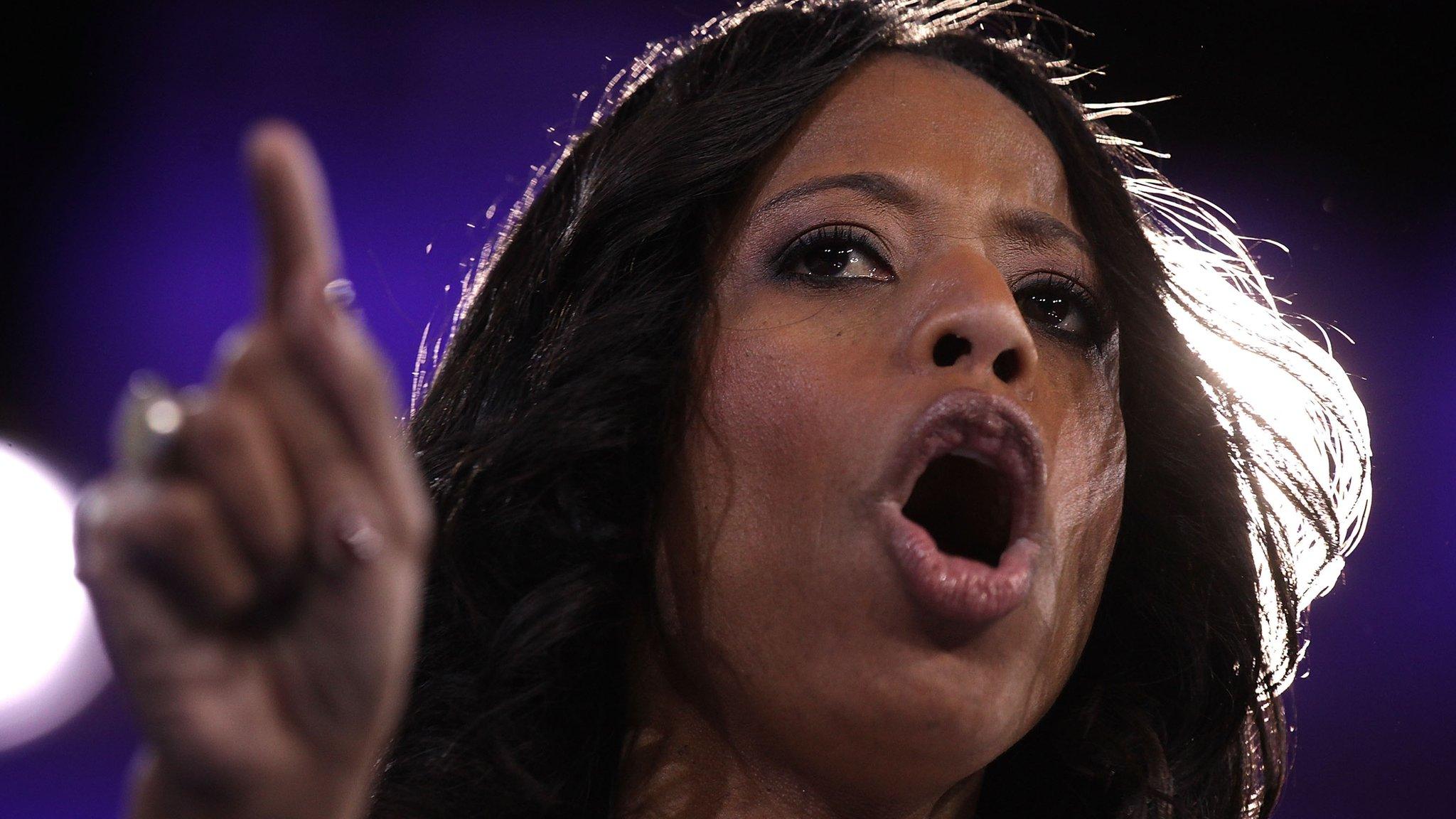Donald Trump's 'racist slur' provokes outrage
- Published
'Mr President, are you a racist?'
US President Donald Trump has sparked outrage by reportedly using crude language to describe foreign countries in an Oval Office meeting.
Mr Trump insists he did not insult Haitians and appeared to deny calling any nations "shitholes", as was reported, prompting a global outcry.
Democratic Senator Dick Durbin said Mr Trump called African countries "shitholes" and used "racist" language.
But two Republicans present said they could not remember those comments.
Senators Tom Cotton and David Perdue, of Arkansas and Georgia, said they heard the president "call out" what they described as "the imbalance in our current immigration system".
Amid widespread coverage of his remarks at the private meeting with lawmakers to discuss immigration legislation on Thursday, Mr Trump on Friday tweeted that his language at the meeting had been "tough". But he added that the words attributed to him were "not the language used".
Dick Durbin: "Trump said these hate-filled things, and he said them repeatedly"
Many US media outlets reported the comments on Thursday, quoting witnesses or people briefed on the meeting. The White House did not deny them.
"I cannot believe that in the history of the White House, in that Oval Office, any president has ever spoken the words that I personally heard our president speak yesterday," Mr Durbin told reporters on Friday.
House Speaker Paul Ryan, a top Republican, said the reported comments were "unfortunate" and "unhelpful.
Hillary Clinton, who lost to Mr Trump in the 2016 presidential election, said the country had been subjected to his "ignorant, racist views of anyone who doesn't look like him".
Mr Trump ignored press questions about the issue as he signed a proclamation declaring a holiday in honour of civil rights hero Martin Luther King Jr - as presidents do every year.
He said Americans were celebrating that "self-evident truth" that "no matter what the colour of our skin or the place of our birth, we are all created equal by God".
What was the context for the comments?
Mr Trump's reported remarks came as lawmakers visited him on Thursday to discuss a bipartisan proposal that would impose new restrictions on immigration but protect the so-called "Dreamers" - hundreds of thousands immigrants brought to the US illegally as children - from deportation.
Mr Trump was said to have told them that instead of granting temporary residency to citizens of countries hit by natural disasters, war or epidemics, the US should instead be taking in migrants from countries like Norway.
"Why are we having all these people from shithole countries come here?" the Washington Post quoted him as saying, in remarks first reported to be about Haiti, El Salvador and African nations.
Mr Durbin said that when Mr Trump was told that the largest groups of immigrants with Temporary Protected Status (TPS) were from El Salvador, Honduras and Haiti, the president responded: "Haitians? Do we need more Haitians?"
But in another tweet on Friday the president denied that he insulted Haitians.
Allow X content?
This article contains content provided by X. We ask for your permission before anything is loaded, as they may be using cookies and other technologies. You may want to read X’s cookie policy, external and privacy policy, external before accepting. To view this content choose ‘accept and continue’.
What was the global reaction?
Botswana summoned the US ambassador to "express its displeasure" at what it called "highly irresponsible, reprehensible and racist" comments
It asked the ambassador "to clarify if Botswana is regarded as a 'shithole' country given that there are Botswana nationals residing in the US"
The African Union said it was "frankly alarmed" by Mr Trump's statement
UN human rights spokesman Rupert Colville said the comments, if confirmed, were "shocking and shameful", adding: "I'm sorry but there is no other word for this but racist."
Haiti's US Ambassador Paul Altidor told the BBC the idea that "we're simply immigrants who come here to take advantage of the US" is wrong.
The countries with Temporary Protected Status that Trump could be talking about
And in the US?
The National Association for the Advancement of Colored People (NAACP) accused the president of falling "deeper and deeper into the rabbit hole of racism and xenophobia"
Mia Love, a Utah Republican and the only Haitian-American in Congress, demanded an apology from Mr Trump for the "unkind, divisive, elitist" comments
Black Democrat lawmaker Cedric Richmond said the comments were "further proof that his Make America Great Again agenda is really a Make America White Again agenda"
But Steve King, a right-wing Republican Congressman from Iowa, backed the president in a tweet:
Allow X content?
This article contains content provided by X. We ask for your permission before anything is loaded, as they may be using cookies and other technologies. You may want to read X’s cookie policy, external and privacy policy, external before accepting. To view this content choose ‘accept and continue’.

More on Trump's first year

How was the slur reported?
The Washington Post broke the story with the word "shithole" in its headline and in the alert that the paper sent out to followers' smartphones.
On US TV, some broadcasters gave content warnings or avoided saying the word altogether. Fox News used asterisks to obscure the offensive word along the bottom of the screen, but CNN and MSNBC carried it in full.
Around the world, journalists reporting in other languages faced the question of how to translate what Mr Trump had said.
In French, headlines featured "pays de merde", using the expletive to refer to the countries but without the word "hole"
In Spanish, "países de mierda" was used, similar to the French, as well as "países de porquería", which means "trash countries"
In German, "Drecksloch" , which literally means dirt hole but like the word used by Mr Trump is considered vulgar
In Dutch, one newspaper used "achterlijk" (backward) as its headline
In Japanese, a word that translates as "outdoor toilet" was used
In Portuguese, one outlet used a word that translates as 'pigsty', while others translated the quote literally
What the world thinks of Trump
- Published12 January 2018
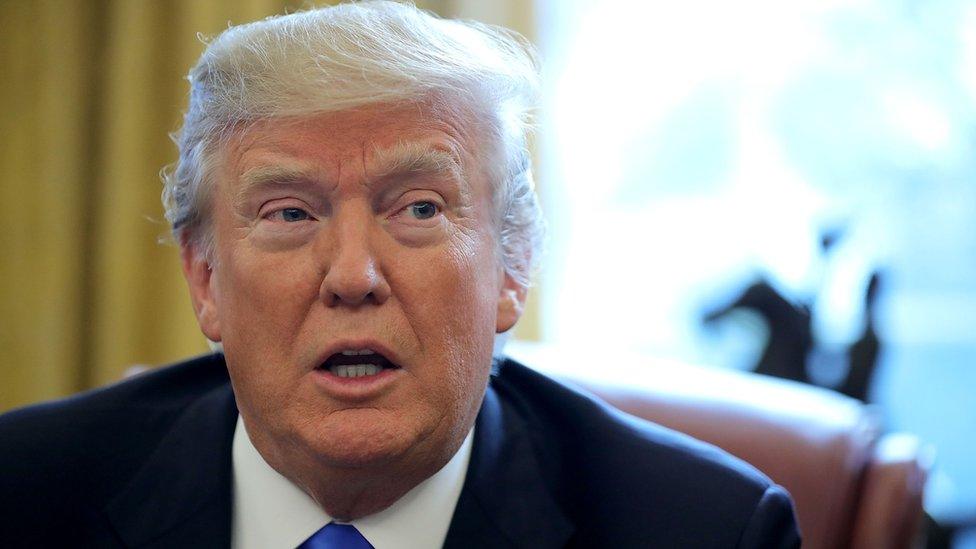
- Published12 January 2018
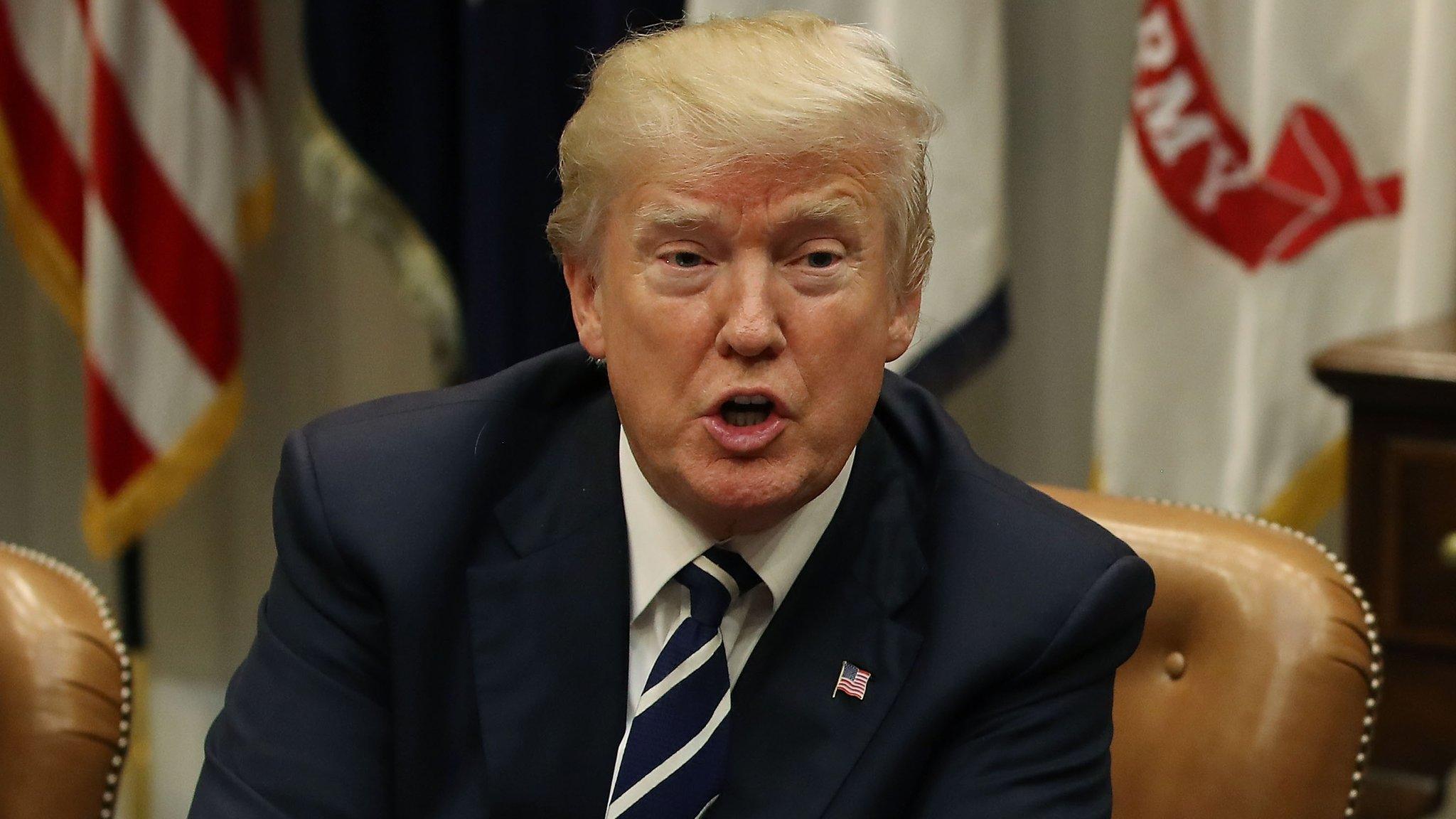
- Published23 July 2018
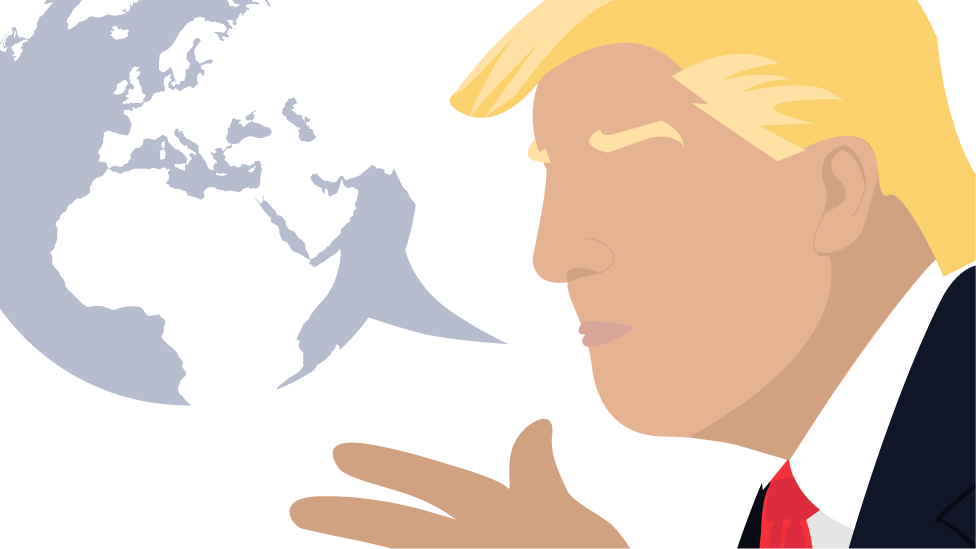
- Published22 November 2017
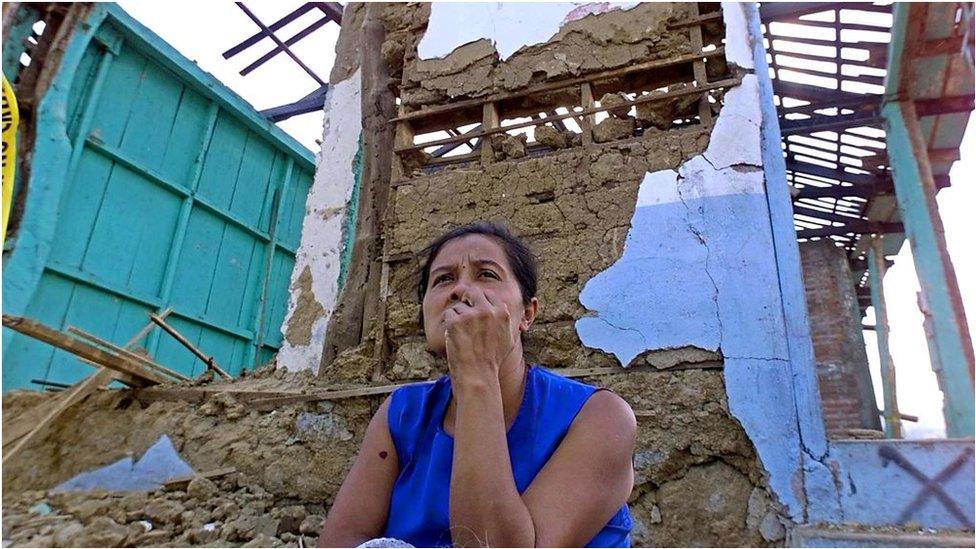
- Published12 January 2018
